College of College of Graduate Studies
The world needs science and science needs women
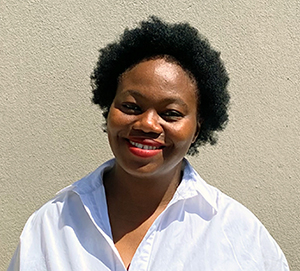
Noluthando Kana, PhD student in Chemical Engineering, a fellow at the UNESCO-Unisa Africa Chair in Nanosciences and Nanotechnology (U2ACN2), and a reactor fuel engineering manager at the Koeberg Nuclear Power Station
Did you know that even in 2021, women are still under-represented at all levels in the disciplines of science, technology, engineering and mathematics (STEM)? This is one of the reasons why the United Nations adopted 11 February as the International Day of Women and Girls in Science.
The day seeks to celebrate women in science and to promote the access of women and their participation in STEM education, training and research activities at all levels. Noluthando Kana is one woman who is infiltrating the world of science. She is a PhD student in Chemical Engineering, a fellow at the UNESCO-Unisa Africa Chair in Nanosciences and Nanotechnology (U2ACN2), and a reactor fuel engineering manager at the Koeberg Nuclear Power Station.
Immersed in the world of science
In 2006, Kana graduated cum laude with a Master’s in Physics (Material Science) as part of the first group of the Manus/MatSci programme between the University of Zululand and the University of the Western Cape. It was during the master’s programme that she met Prof Malik Maaza, her current supervisor, who is the U2ACN2 incumbent. Since 2014, Kana has been working alongside Maaza through her PhD studies with Unisa and they have published their work in sought-after science journals.
In 2006, she joined Eskom Koeberg as a reactor fuel physicist and in 2016 she was appointed as the manager of the Reactor Fuel Engineering Group, "a position that I have occupied with both excitement and utmost respect for the past four years," she said.
The Department of Research, Innovation and Commercialisation news desk interviewed Noluthando Kana about her PhD research study and her role as the reactor fuel engineering manager, and this is what she had to say:
What is your research focus and what drove you to it?
My part-time research is geared towards the synthesis, engineering and optimisation of high-temperature nano-fluids based on one or two-dimensional nanoparticles for potential application in nuclear energy heat transfer systems. I had always known that I wanted to continue with research even while I was working, and when I took the decision to start pursuing my PhD part time, we looked for a subject that would be suitable for both nuclear applications and nanotechnology.
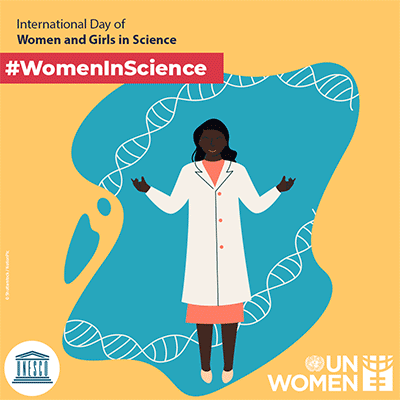 How does your research contribute to society?
How does your research contribute to society?
Nanofluids significantly improve the heat transfer capability of conventional heat transfer fluids such as oil or water by suspending nanoparticles in base liquids. These novel nanofluids have a wide set of applications in heat transfer systems in general and our aim is to synthesise this new generation of coolants for nuclear systems.
How has it been conducting research during the Covid-19 pandemic?
The worst of the pandemic came when I had completed my experimental work, which was a positive for me. That said, it has taken a lot of adjustment and personal drive to stay connected with my research community and publish our work.
What does your role as the reactor fuel engineering manager entail?
My role as the reactor fuel engineering manager at Koeberg Nuclear Power Station is critical and quite dynamic for Koeberg and for the future of the nuclear industry in Africa as a whole. The Reactor Fuel group manages and controls all nuclear-fuel-related activities at Koeberg site. Our key performance areas include ensuring reactor safety, managing nuclear fuel cycle economy through an optimised fuel management strategy, providing neutronic calculational capability, supporting the reactor operators, and also ensuring proper implementation of the International Atomic Energy Agency (IAEA) safeguards at Koeberg.
I have been in this position for four years and two months and I am still enjoying the different challenges it offers. The role has stretched me as a person and has taught me much as a leader, with my biggest focus being on people. I have been fortunate to lead and be led by committed individuals who value and understand how critical our role is, not only to Koeberg but to South Africa as a whole.
As a fellow in the U2ACN2, what have been the benefits of being under the Chair?
The main benefit of being part of the UNESCO Unisa Africa Chair is the opportunities it provides. Through the Chair, I have had the opportunity to meet and collaborate with the best scientists. As a fellow, I gain access to various world-class facilities and equipment in South Africa and with UNESCO partners abroad.
The mentorship programme is excellent. Apart from Prof Malik Maaza, who I have been privileged to know and have worked with since 2004, throughout my PhD I have worked with Dr Kaviyarasu Kasinathan, UNESCO-UNISA Research Fellow and iThemba LABS (NRF) from India, who has also become a close friend. Both Dr Kasinathan and Prof Maaza were named in the 2020 list of the top 2% most-cited scientists globally.
What has been the highlight of your research journey?
Professionally, it has been meeting and collaborating with world-renowned scientists through the UNESCO Unisa Africa Chair.
Personally, it has been the ability to juggle the demands of the research work, my job, and being there with and for my family.
Learn more about Kana’s research work through her journal articles:
- N. Kana, K. Kaviyarasu, T. Khamliche, C. Maria Magdalane, M. Maaza, Stability and thermal conductivity of CuO nanowire for catalytic applications, Journal of Environmental Chemical Engineering 7 (2019) 103255.
- N. Kana, A. Galmed, T. Khamliche, K. Kaviyarasu, M. Maaza, Thermal Conductivity Enhancement in MoO3-H2O Nano-sheets Based Nano-fluids, Journal of Environmental Chemical Engineering 7 (2019) 103255.
- S.S. Rathnakumar, K. Noluthando, A.J. Kulandaiswamy, J.B.B. Rayappan, K. Kasinathan, J. Kennedy, M. Maaza, Stalling behaviour of chloride ions: A non-enzymatic electrochemical detection of α-Endosulfan using CuO interface, Sensors & Actuators: B. Chemical 293 (2019) 100–106.
* By Mpho Moloele, PR and Communications Assistant, Department of Research, Innovation and Commercialisation
Publish date: 2021-02-23 00:00:00.0


 Breaking language barriers: SRU promotes inclusivity with multilingual support resources
Breaking language barriers: SRU promotes inclusivity with multilingual support resources
 Aiming at new heights: Professor Mashau takes helm as CHS's Deputy Dean
Aiming at new heights: Professor Mashau takes helm as CHS's Deputy Dean
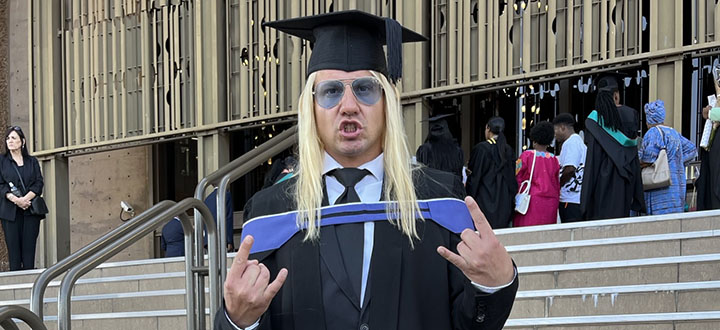 Don Cobra strikes a new chord: Musician earns a business degree
Don Cobra strikes a new chord: Musician earns a business degree
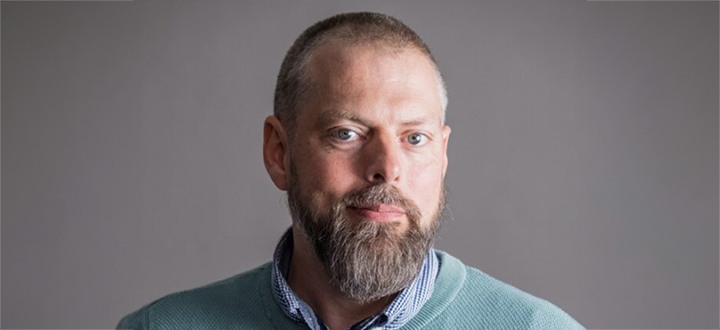 Unisan to lead Southern Africa region in "Building Equitable Futures Together" project
Unisan to lead Southern Africa region in "Building Equitable Futures Together" project
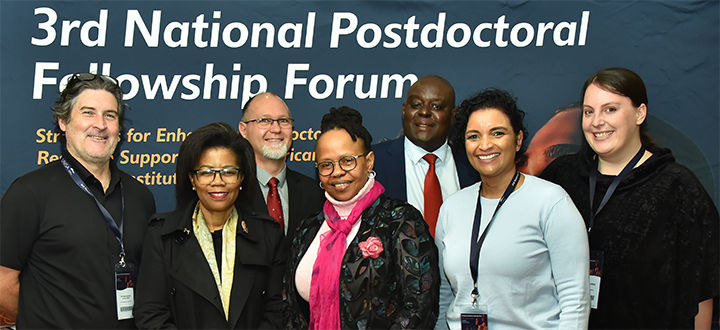 Unisa kicks off National Postdoctoral Fellowship Forum
Unisa kicks off National Postdoctoral Fellowship Forum